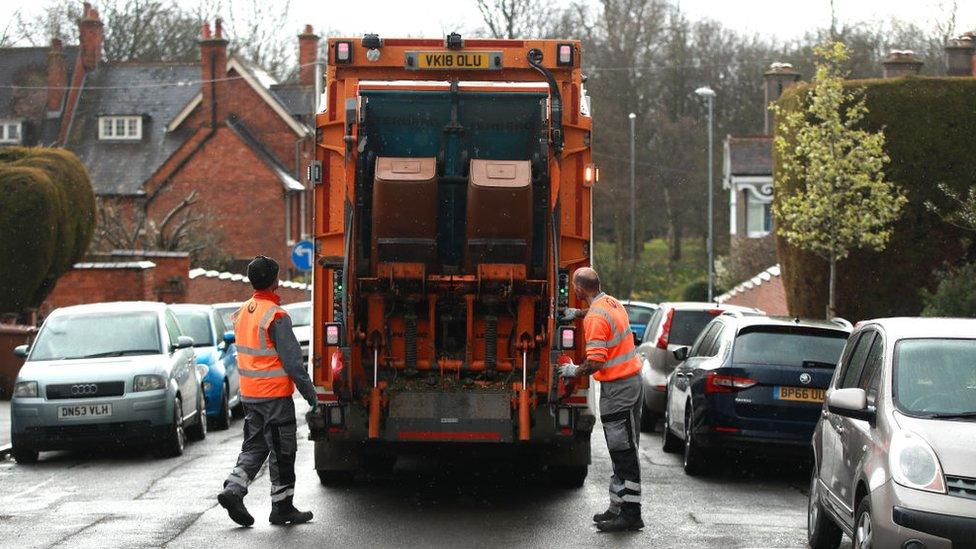Council workers reject 'insulting' 1.75% pay increase offer
- Published

Councils are continuing to collect rubbish, but many have made changes to normal arrangements
Two of the UK's biggest unions have rejected a 1.75% pay rise for council staff in England, Wales and Northern Ireland, calling the offer "pathetic".
Unite and the GMB warned of potential industrial action, after their members voted overwhelmingly against what their leaders called a real-terms salary cut.
But the National Employers group, which sets local authority pay, has said its offer is final.
The Consumer Prices Index rate of inflation, external is currently 3.2%.
The dispute between unions and councils comes as National Insurance payments are set to rise from next April, with the UK government attempting to fund social care and deal with the increase in NHS waiting lists caused by the pandemic.
Gas prices have also surged in recent weeks, prompting Labour to warn of a difficult few months ahead for many.
But, in his speech to the Conservative Party conference on Wednesday, Prime Minister Boris Johnson said current problems were the short-term result of an economic rebound in the wake of Covid shutdowns.
Council workers balloted on the latest pay offer included school support staff and refuse collectors, with Unite members rejecting it by four to one and the GMB's by three to one.
The GMB, Unite and the public sector union Unison - which also rejected the offer earlier this week and is balloting on strike action - are all calling for a 10% pay rise.
GMB national officer Rehana Azam said: "[Workers have] had their pay slashed by 23% in real terms during a decade of austerity - now they're being offered yet another pay cut. It's offensive.
"GMB will urge local government employers to get back round the table and improve the pay offer or we will have no alternative but to begin preparing for industrial action."
Unite general secretary Sharon Graham said: "[Council staff] have held our services together at a time of national emergency. This resounding vote shows their anger at this insulting offer."
The National Employers offered council workers a 1.5% rise in May but, after unions rejected it, raised it to 1.75% in July - with a 2.75% increase for those earning less than £18,198.
At the time, the group, made up of senior councillors, said it was "acutely aware of the added impact that the pandemic is having on councils' budgets and future financial stability".
"This is why their improved offer is final. It represents the limit of affordability for most councils," it added.
Council chief executives, senior officers, teachers and firefighters all have their own separate national pay arrangements.